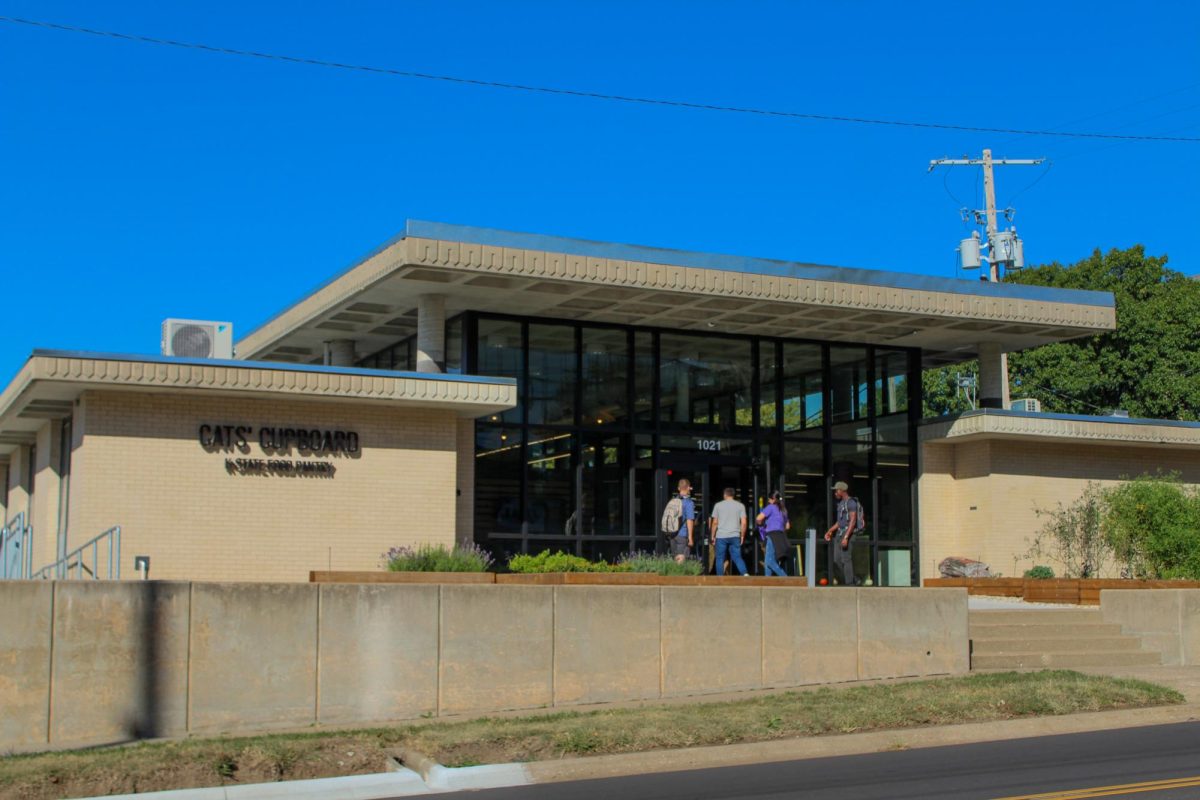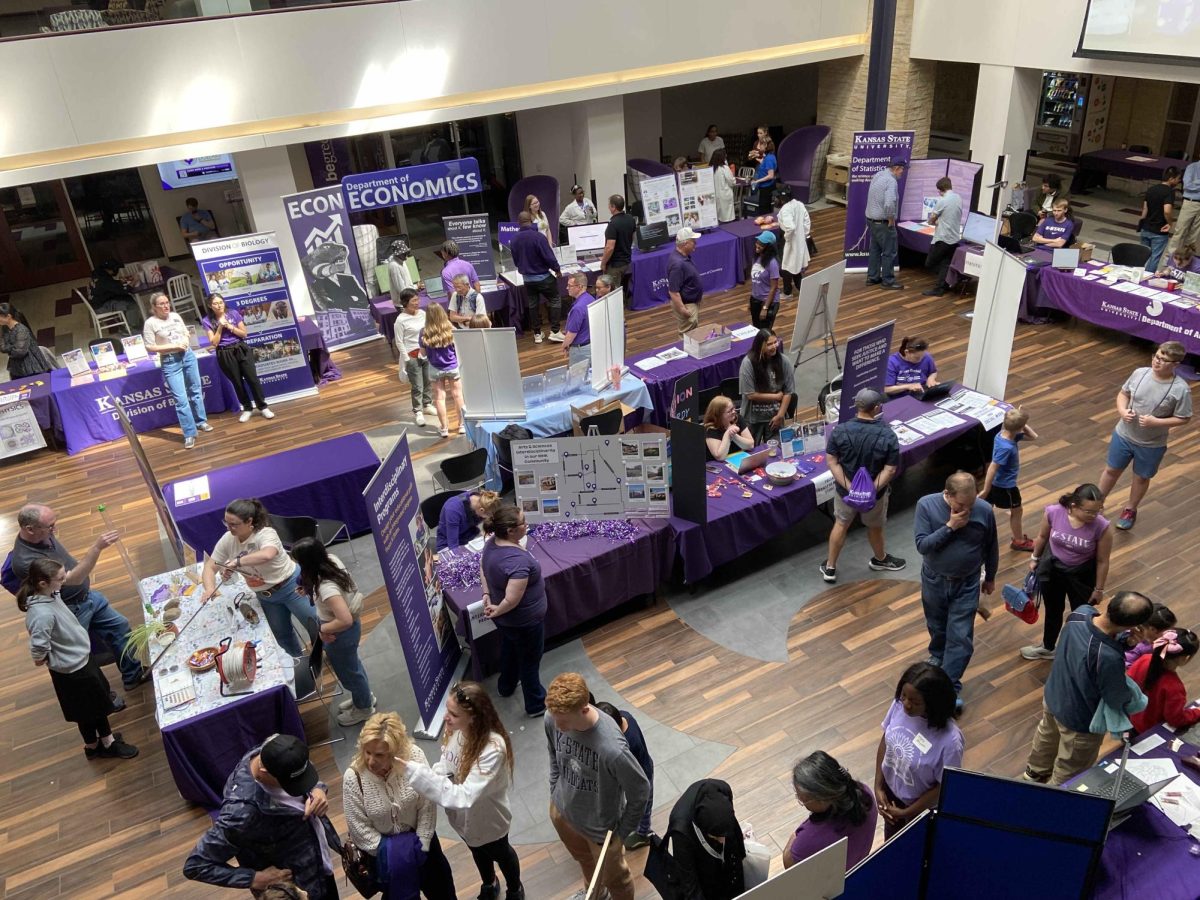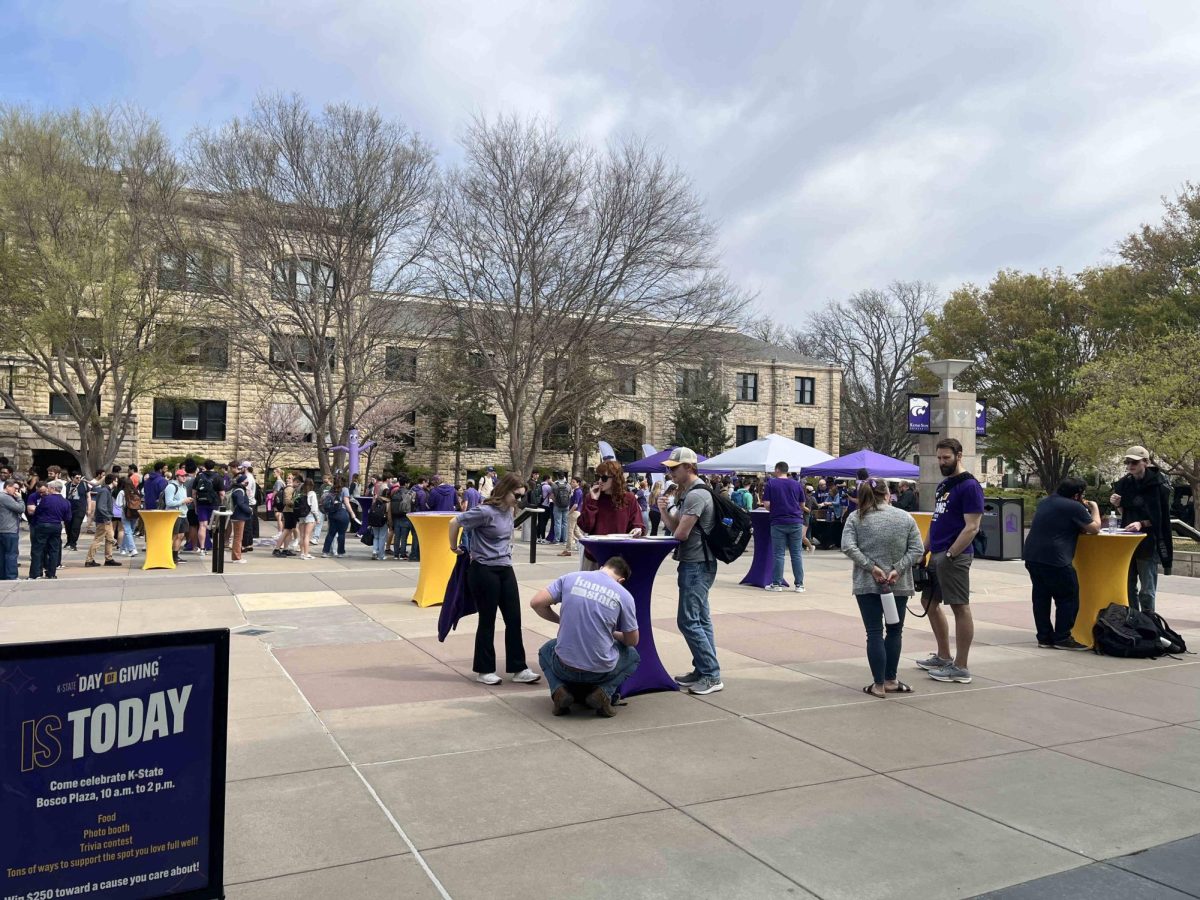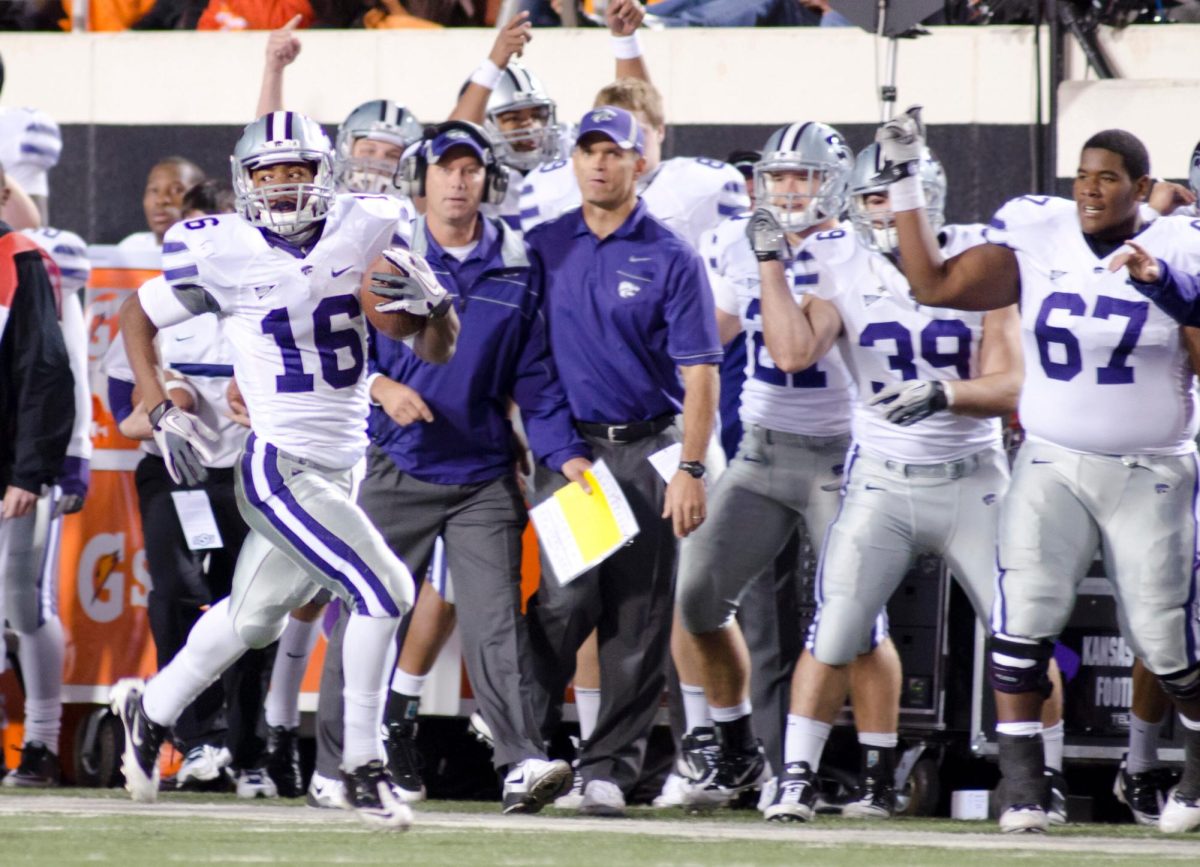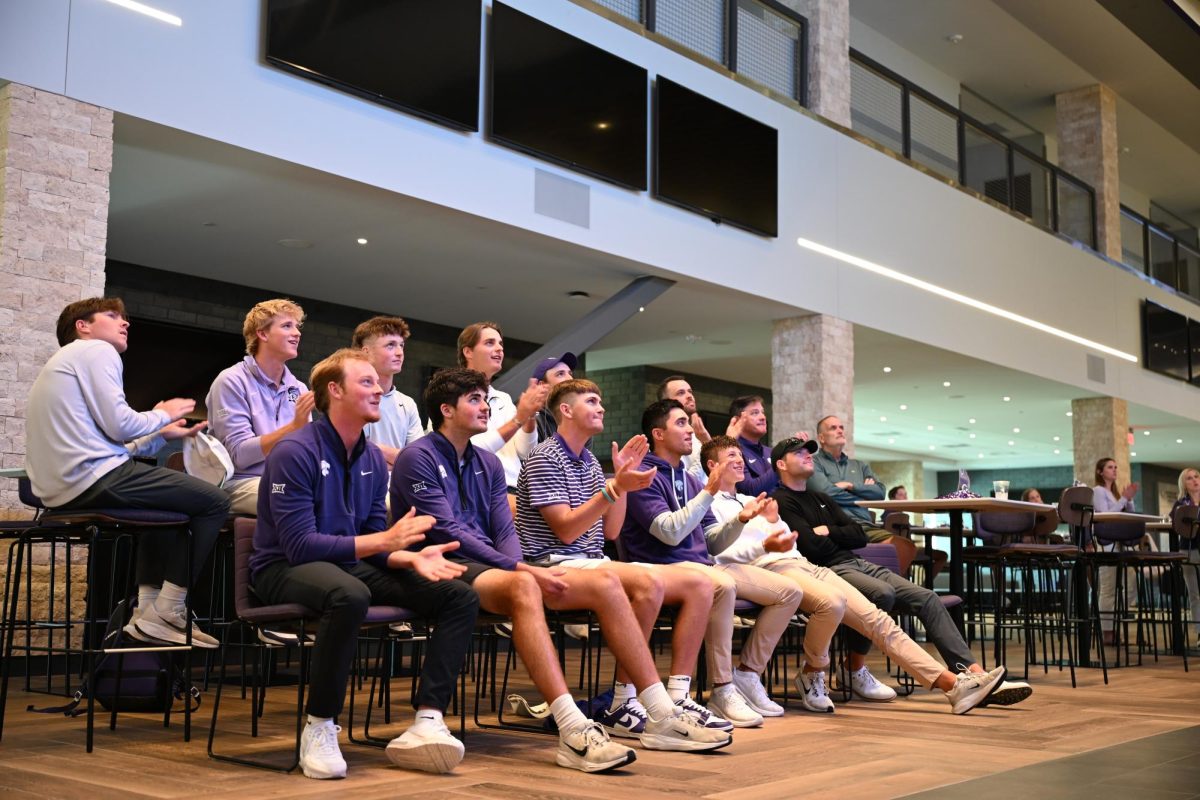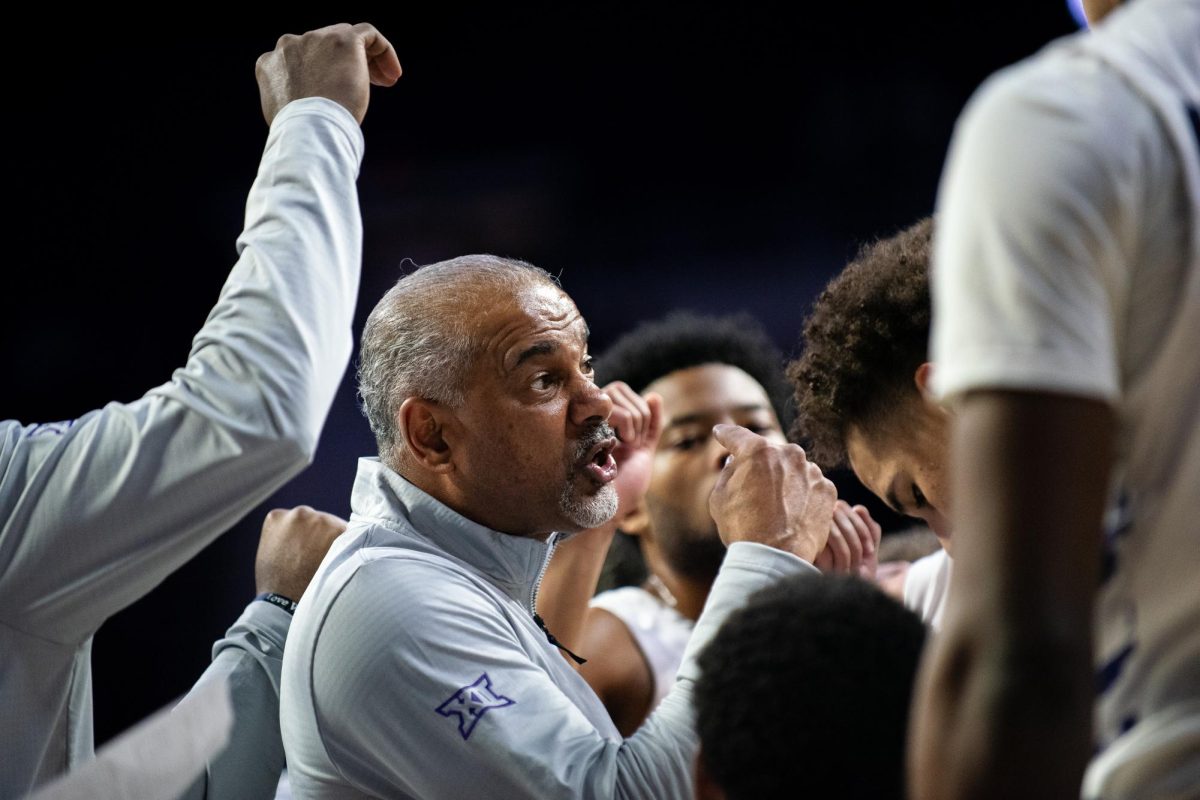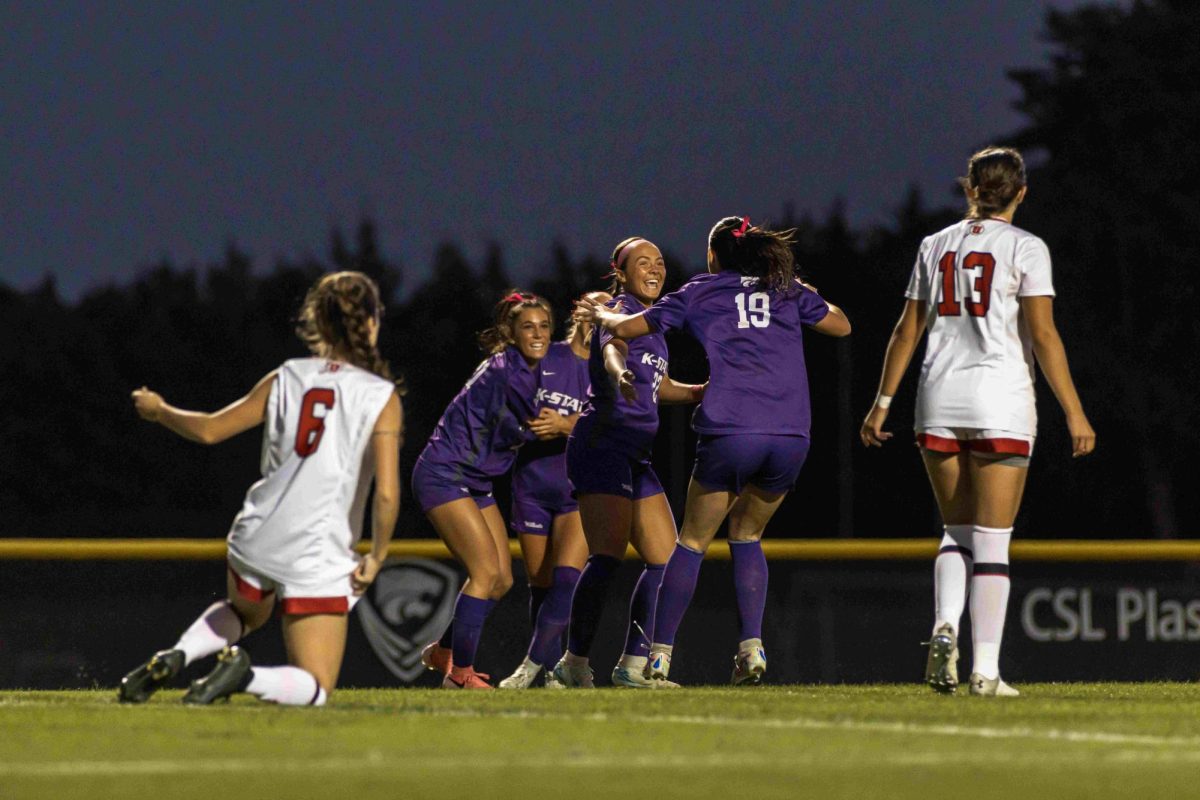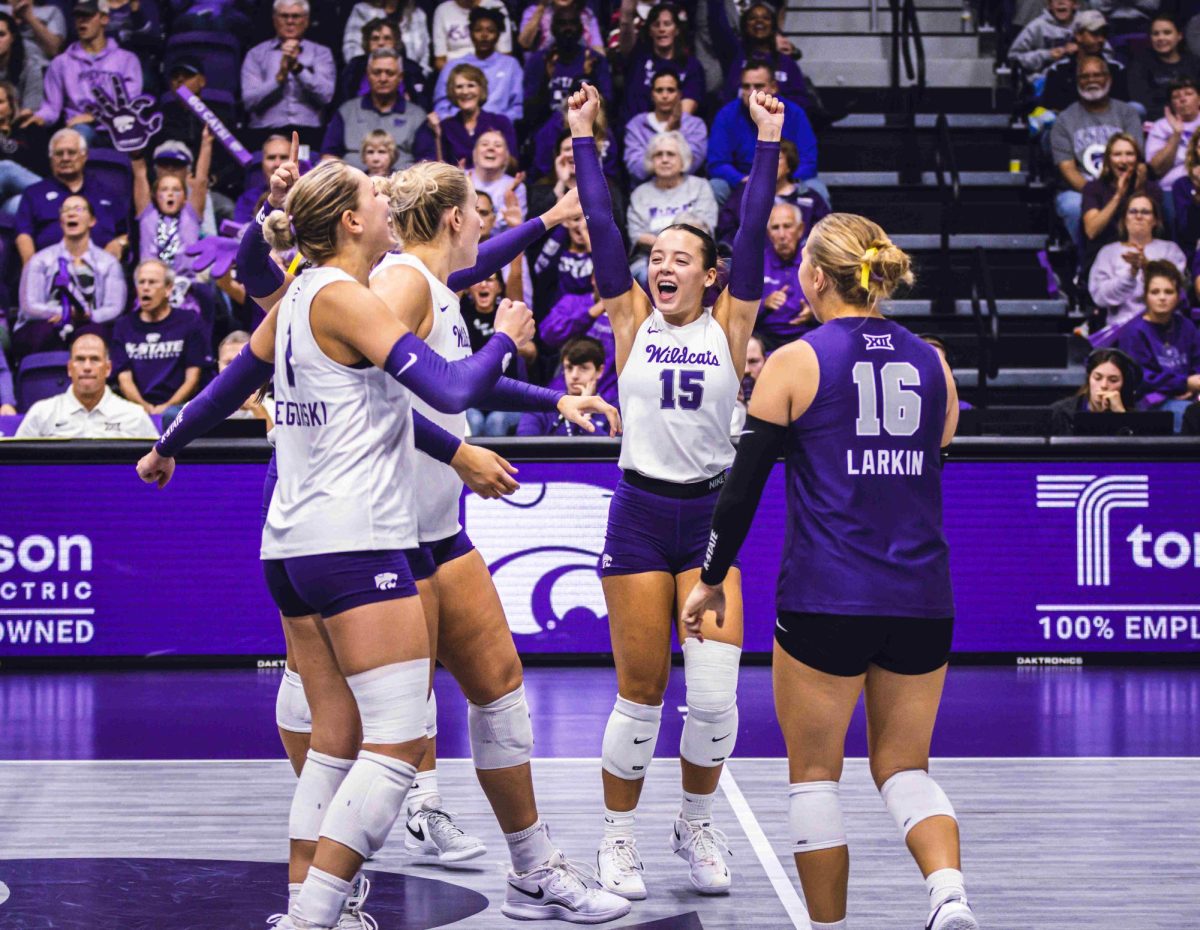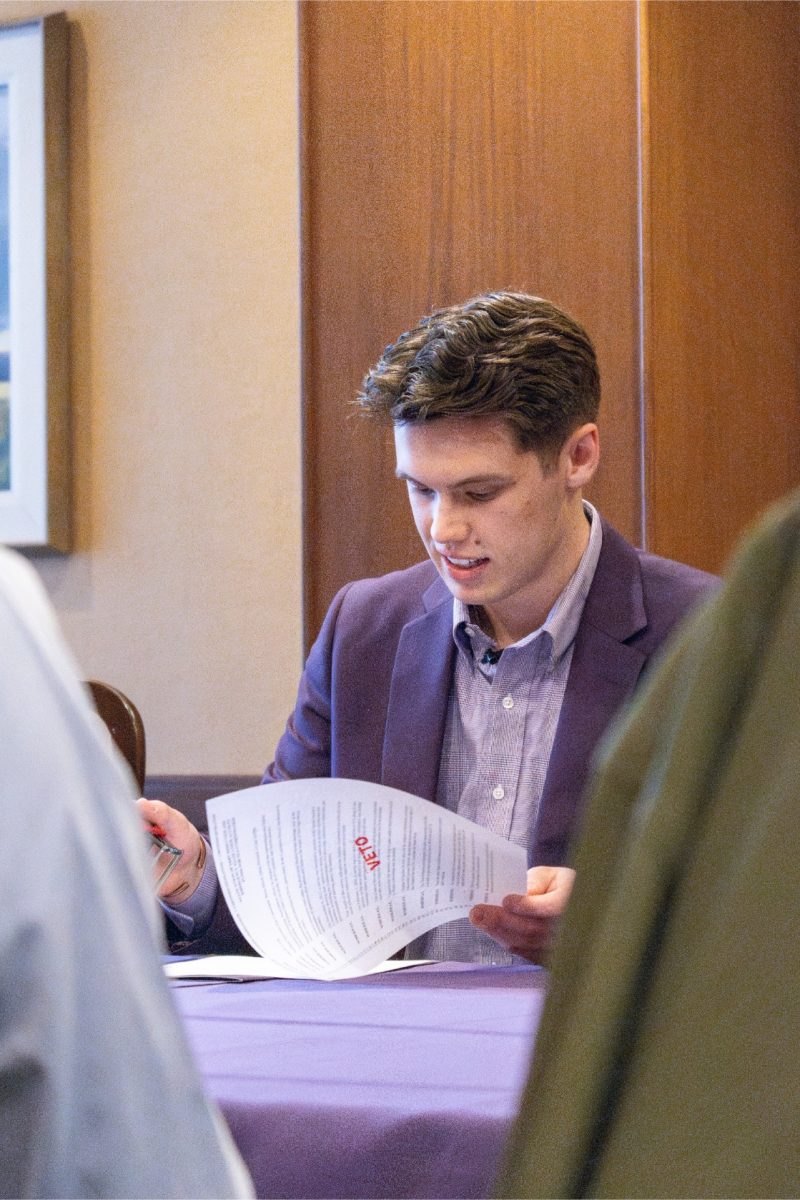Kansas State Student Body President Caleb Stout vetoed Bill 23/24/81, a student senator compensation package, on Thursday in the K-State Student Union Konza Room.
Stout said the bill’s compensation for senators would come from “an allocation of debt reduction in emergency allocation account funds.”
“This is funds that would go towards the start-of-the-term cocktail hour, premium parking passes for members of the Student Senate, and Student Senate only, and a few other things,” Stout said.
Stout said he was influenced to veto the bill after hearing feedback from members of the K-State community.
“In the past week I received feedback from many, including past senators, present senators, future senators, the press and even those with little-to-no connection or interest in SGA,” Stout said. “The message is clear: students do not want to see Bill 23/24/81 take effect.”
Stout said passing the bill would be unfair to the general student body.
“The allocation of funds for parking passes may exacerbate existing demands for garage parking on campus, potentially disadvantaging other students,” Stout said.
The “long-term implications” of the bill would also be problematic, Stout said.
“It is crucial to consider whether the proposed compensation might inadvertently incentivize a focus on monetary gain over the core responsibilities and duties of SGA members,” Stout said. “This could potentially undermine our organization’s effectiveness.”
Stout said the purpose of the bill was to increase participation in the Student Senate, but there is no evidence it would be effective in doing so.
“While preferences for certain compensation items may have been expressed, it is essential to ensure that any initiatives undertaken are based on sound evidence and strategic planning,” Stout said.
Stout said he hopes SGA members will search for other ways to increase senator participation and retention.
“I urge you to explore alternative approaches to addressing the recruitment and retention challenges with SGA while also prioritizing open dialogue, collaboration and fiscal responsibility,” Stout said. “This will be essential in finding sustainable and effective solutions.”



